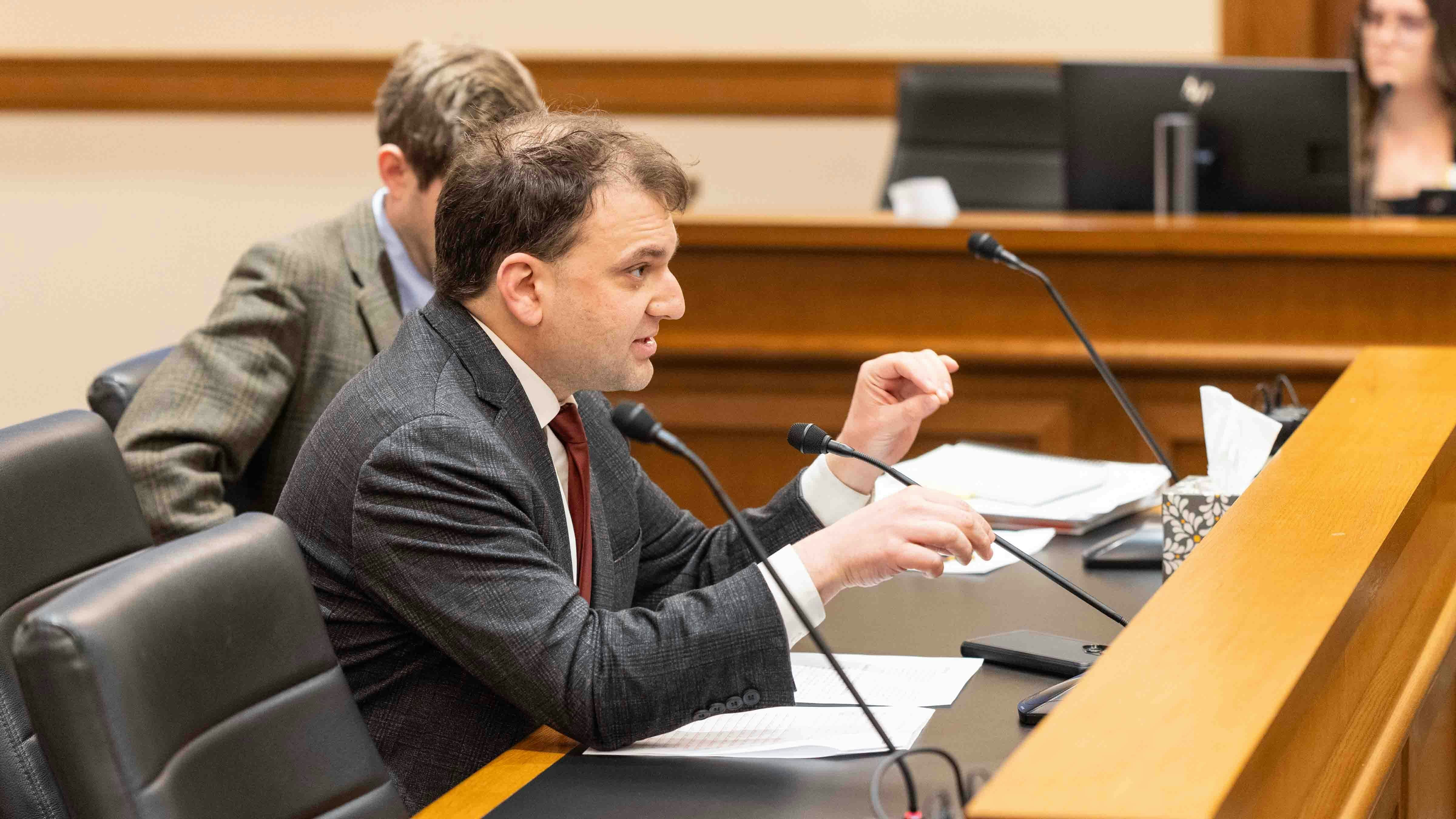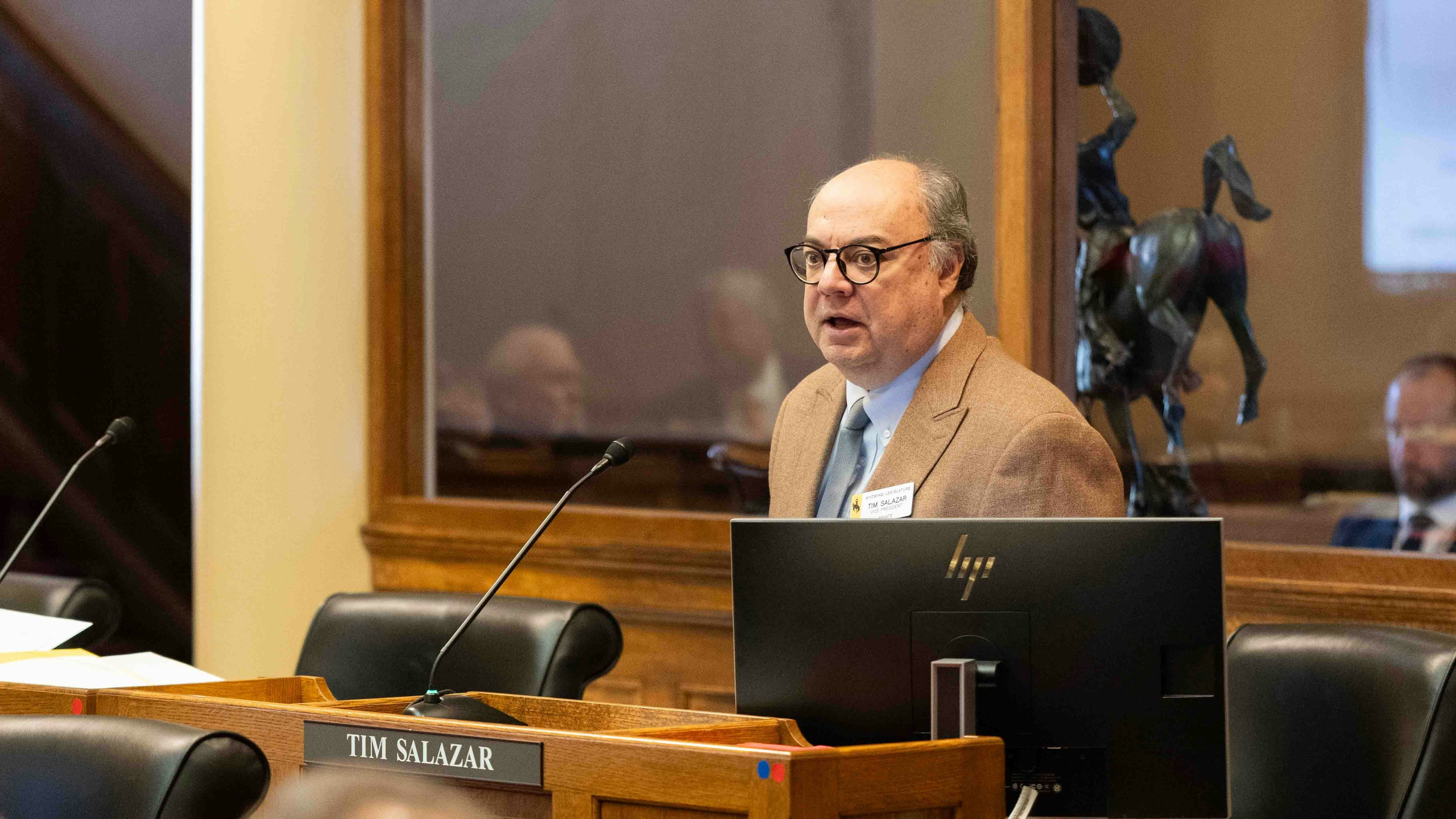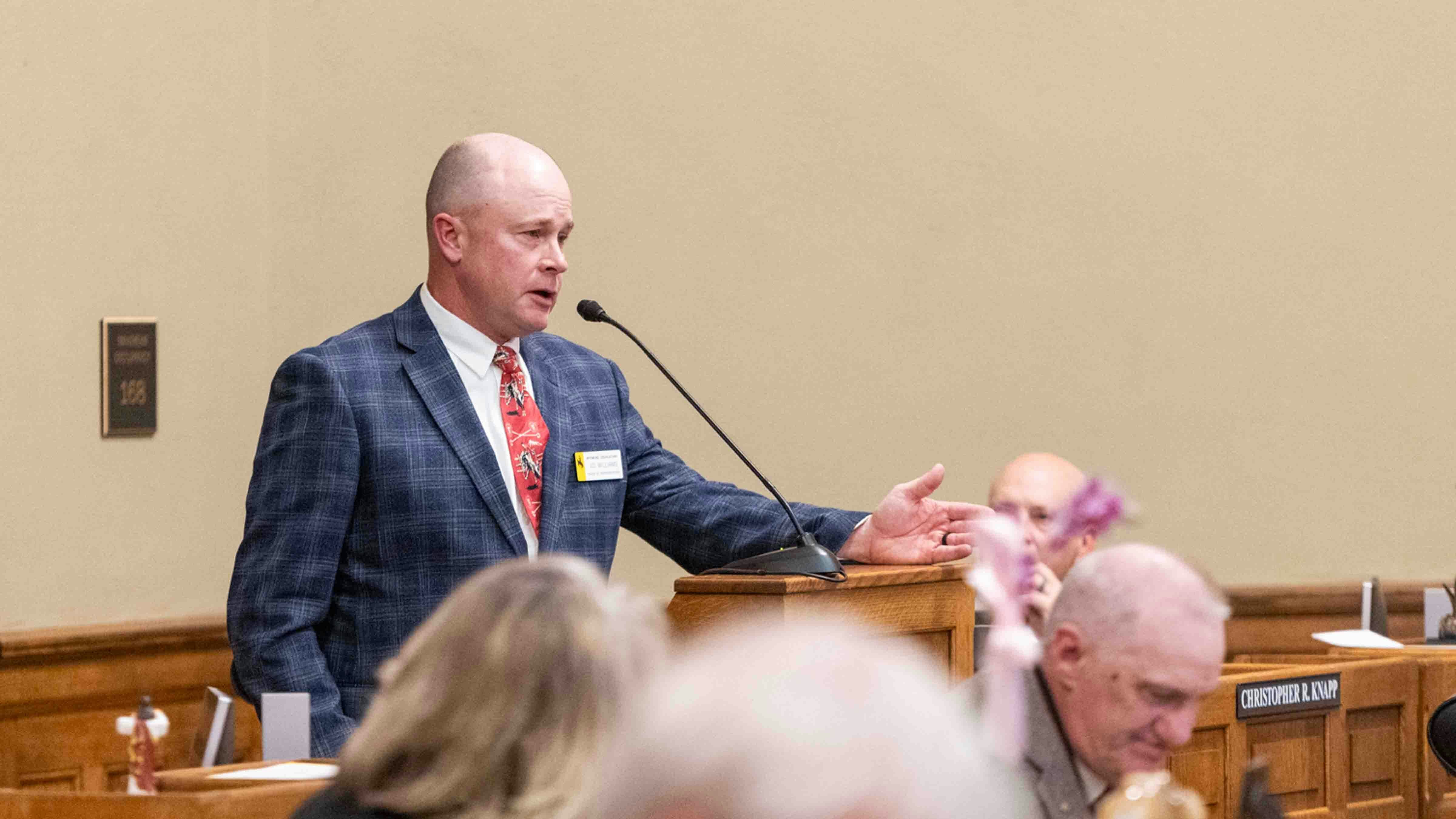RELATED: Sorority Lawsuit Has National Implications, Could End Up In U.S. Supreme Court
Seven past and present sorority members are suing the Kappa Kappa Gamma sisterhood for its 2022 decision to admit transgender inductee Artemis Langford to the University of Wyoming chapter.
“An adult human male does not become a woman just because he tells others that he has a female ‘gender identity’ and behaves in what he believes to be a stereotypically female manner,” reads a legal complaint filed Monday in the U.S. District Court for Wyoming.
“The Fraternity Council has betrayed the central purpose and mission of Kappa Kappa Gamma by conflating the experience of being a woman with the experience of men engaging in behavior generally associated with women.”
Langford’s induction made local and national headlines and has created statewide controversy.
The Kappa Kappa Gamma Fraternity is the parent organization of the sorority.
Langford did not immediately respond to a Cowboy State Daily message requesting comment.
Pseudonyms All Around
Seven anonymous women who are current and past members of the UW sorority chapter filed the lawsuit Monday via their attorneys, John Knepper and Cassie Craven, against:
- Kappa Kappa Gamma Fraternity base in Ohio
- The organization’s council president, Mary Pat Rooney
- Kappa Kappa Gamma Building Co. in Wyoming
- Terry Smith, which is a pseudonym for Langford
The attorneys wrote in the legal complaint that they have chosen to refer to the defendant by the pseudonym of Terry Smith, just as they’ve chosen to refer to all the female plaintiffs as “Jane Doe.”
However, Langford’s membership in the sorority has been verified and reported by multiple news outlets, including a UW student newspaper Branding Iron story in which Langford was quoted.
The plaintiffs aren’t seeking damages from Langford, but are seeking for the court to void Langford’s membership in the sorority.
‘He,’ And ‘Him’
The women are suing on behalf of themselves and on behalf of the sorority itself, saying certain sorority officials have perverted its mission of 150 years to unite women.
“After national sorority officials disregarded the secret voting process required by Sorority rules and after extensive behind-the-scenes direction from national Sorority officials and alumnae advisers – the Sorority inducted a man, Terry Smith, as a member,” the lawsuit states.
The complaint refers to Langford, aka Smith, as “he” and “him” throughout.
It alleges that sorority bylaws, corporate and other governing documents promise members and prospective members a single-sex organization and a sisterhood intended to be a haven during their college years.
Six women at Monmouth College in western Illinois founded the Kappa Kappa Gamma Fraternity in 1870, the suit says. UW’s chapter has been operational for nearly 100 years.
“Since 1870 – when a woman’s presence in a college classroom, by itself, defied societal norms – Kappa Kappa Gamma has united women in defiance of stereotypes about how women ‘should’ be,” the complaint reads. “Now Mr. Smith – a man who claims to be a woman because he thinks he knows how women should behave – has been brought into the Plaintiffs’ sorority house.”
The 1871 bylaws say that “any lady may become a candidate for membership who shall be of good moral character and above average talent.”
Rooney and the members of the Kappa Kappa Gamma Fraternity Council in 2018 issued a memorandum titled “Guide for Supporting our LGBTQIA+ Members” instructing sorority chapters to admit both women and “individuals who identify as women.”
The plaintiffs allege that this “Guide” does not alter the bylaws, corporate governing and other founding documents of the sorority, and that the sorority has therefore breached its fiduciary duty toward its female members.
Congress in 1974 created an exception to Title IX’s embargo on sex discrimination to allow sororities and fraternities to discriminate to preserve single-sex organizations, the lawsuit notes.
‘On Display For Men’
The complaint later clarifies that “Smith” lives outside of the sorority house now while fulfilling a housing contract elsewhere, but is slated to live at the sorority in the coming year and often stays there for meals and other “secret” sorority rituals and events.
The doors to the sorority house’s communal bathrooms do not lock, the lawsuit continues, and the primary bathroom on the second floor does not have a private area to disrobe before showering.
“Plaintiffs and other sorority members describe the second floor as a private, safe space where young women can interact without concern that they will be on display for men,” the lawsuit says.
Though Langford (“Smith”) doesn’t live in the house, Langford often will sit on the couch in the second-floor common area, not studying, and watches the women, the lawsuit alleges.
“One sorority member walked down the hall to take a shower, wearing only a towel,” the document says. “She felt an unsettling presence, turned, and saw Mr. Smith watching her silently.”
“Smith” is 21 years old, is 6 feet, 2 inches tall and weighs 260 pounds, the document says, adding, “No other member of Kappa Kappa Gamma has comparable size or strength.”
Langford is “sexually interested in women,” the lawsuit alleges, adding that “Smith” – Langford – has a profile on Tinder “through which he seeks to meet women.”
“Mr. Smith has, while watching members enter the sorority house, had an erection visible through his leggings,” the suit says. “Other times, he has had a pillow in his lap.”
The complaint says Langford has “not undergone treatments to create a more feminine appearance.”
Awkward Moments
The complaint also claims Langford took photographs of the women at awkward moments when they were not prepared while at a sorority slumber party.
“Smith repeatedly questioned the women about what vaginas look like, breast cup size, whether women were considering breast reductions and birth control,” the complaint alleges.
Langford “was supposed” to leave the slumber party by 10 p.m. but did not, saying Smith would leave “after you fall asleep.”
At 11:15 p.m., Langford loudly sang, “God Rest Ye Merry Gentlemen” from a corner of the room, then did not leave until midnight, the complaint says.
The next morning, Langford returned to the house and stood silently in the corner of the room near the door while other pledges changed from sleeping garments into other clothes, the lawsuit says.
One woman did not know Langford had returned. She faced away from the others and took off her shirt, while not wearing a bra. After she put on a new shirt, she turned around and discovered Langford staring at her, according to the complaint.
Other Kappa members told the woman later that day that Langford appeared sexually aroused during this incident and stood near the door with “his hands over his genitals,” the complaint alleges. “Since that event, Mr. Smith has repeatedly asked (the woman) about her romantic attachments.”
Langford also sat in the back of a sorority yoga class for an hour in December “and watched the assembled young women flex their bodies,” the suit says.
Voting System
The complaint alleges that for “Smith’s” induction vote, the sorority chapter broke with its usual anonymous voting process and used a Google poll requiring voters to sign in using their email addresses, compromising their anonymity.
“Sorority representatives not only approved Mr. Smith’s membership, but national Sorority officials also encouraged chapter officers to pursue Mr. Smith and guided chapter officers in the illegal selection process,” the complaint alleges.
Several of the women would have voted against Langford (“Smith”) in an anonymous vote, the lawsuit continues, but chose not to because of the public voting system.
The chapter president, membership chair and vice president for Academic Excellence spoke prior to the vote, the complaint alleges, telling the women they could only vote against Langford if they could articulate specific concerns about Langford’s personality.
“If members had not met Mr. Smith, then a ‘no’ vote was evidence that the member was a bigot,” the complaint says, adding that bigotry is grounds for expulsion.
National alumnae supervisors were pressuring the UW chapter to induct its first transgender member to raise the chapter’s prominence and garner the national sorority leaders’ favor, the suit says.
Loyalty Pledge
The complaint says that Kappa Kappa Gamma inductees pledge not to enter another sorority, even if they leave this one.
That means women who choose to leave the sorority over Langford’s induction cannot enjoy sorority life elsewhere, the lawsuit says.
The complaint also says that Langford had a 1.9 cumulative grade point average in the autumn of 2022, which is below the required 2.7 GPA for sorority applicants.
A woman who questioned Langford’s induction and disputed whether Langford is a woman was given literature to “educate” herself, the lawsuit says.
Besides asking the court to void Langford’s membership in the sorority and declare that men cannot be in the sorority under its existing governing documents, plaintiffs also are asking the court to declare that the defendants have violated their obligation to the sorority.
They are asking for monetary damages for the defendants allegedly violating the sorority housing contract, for monetary damages “to compensate for Defendants’ wrongful acts,” and for the defendants to reimburse their attorneys’ fees.





